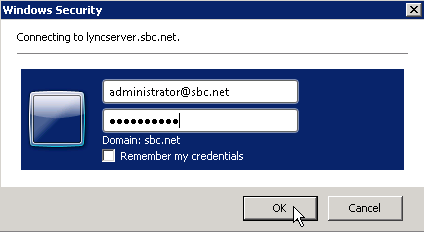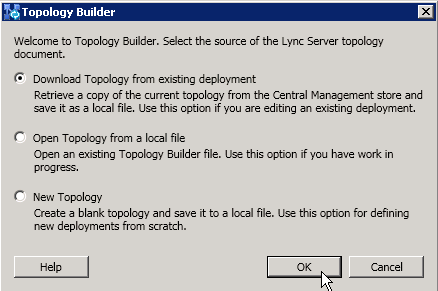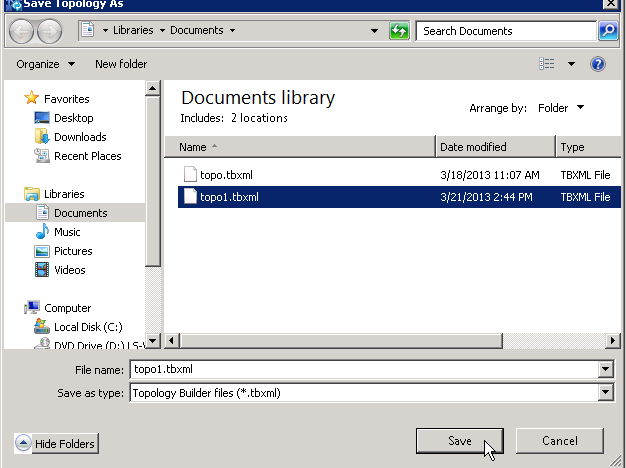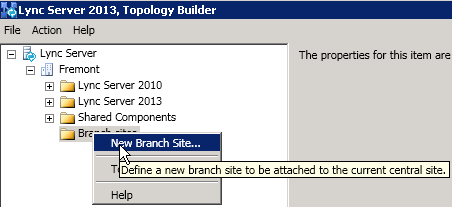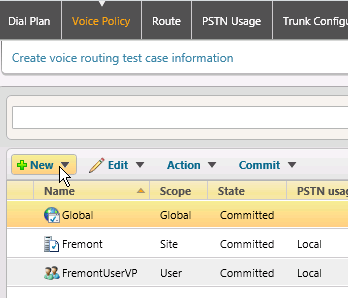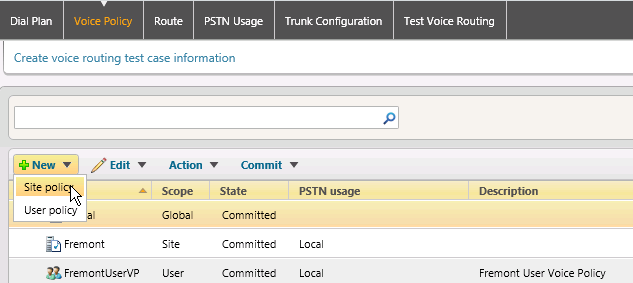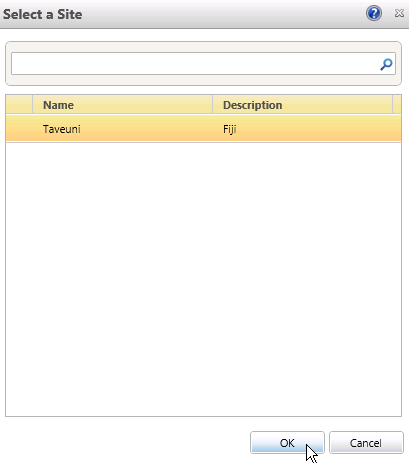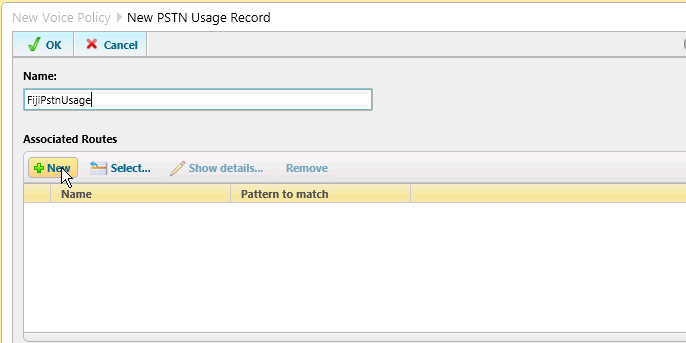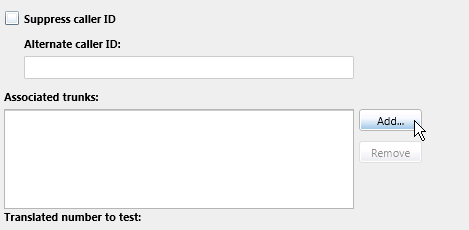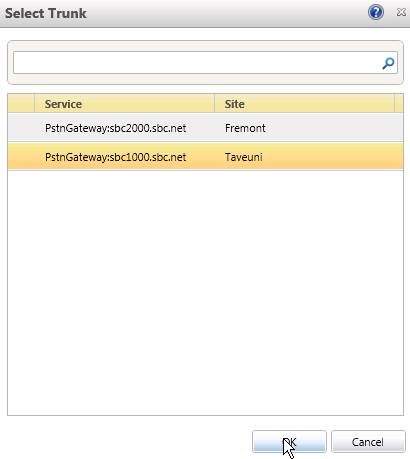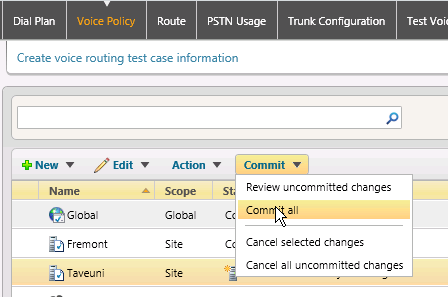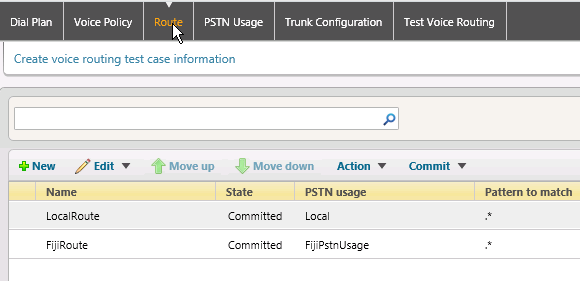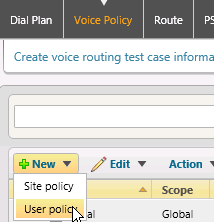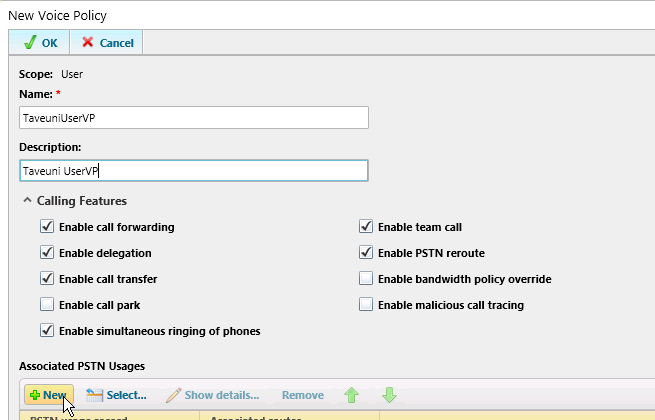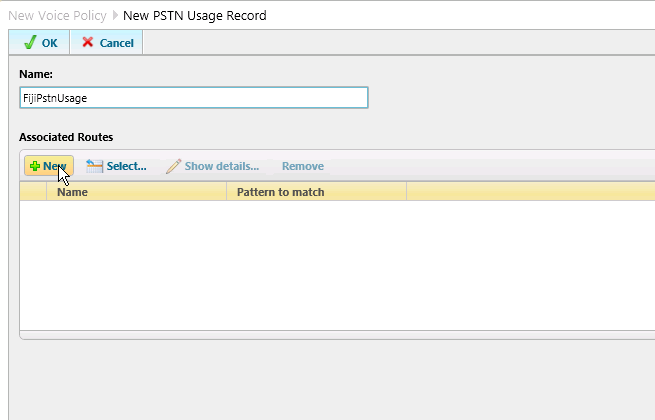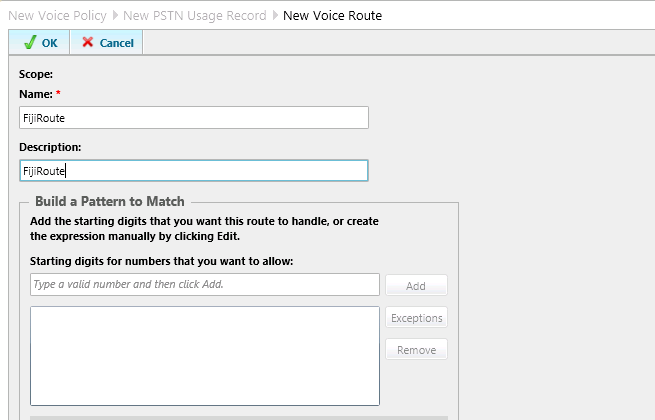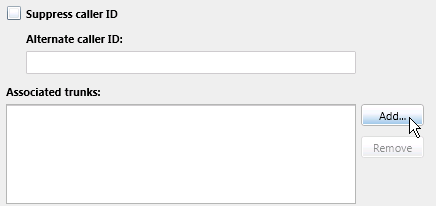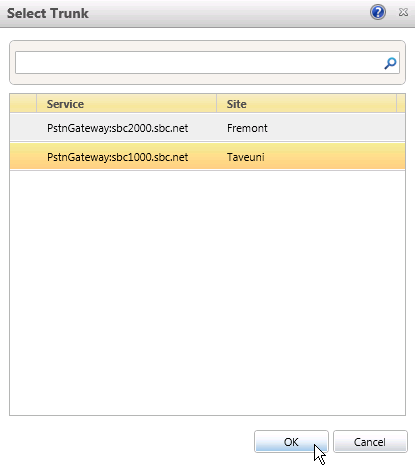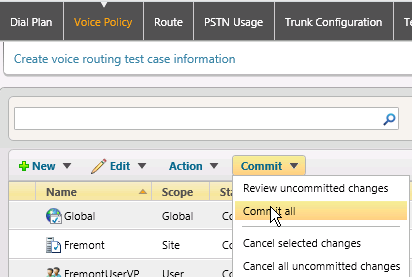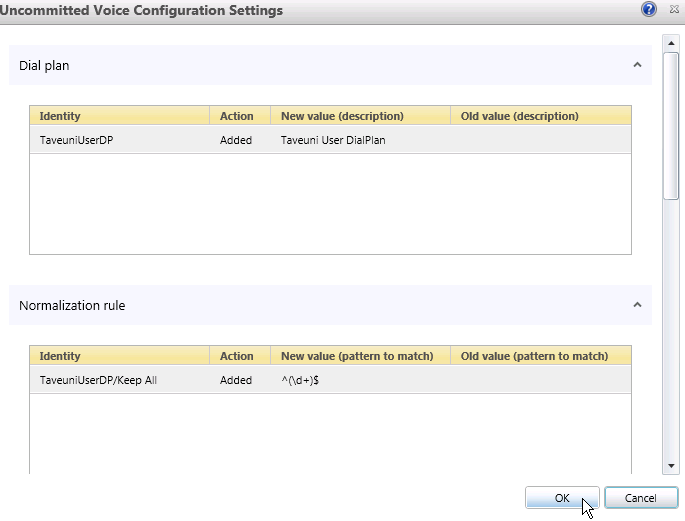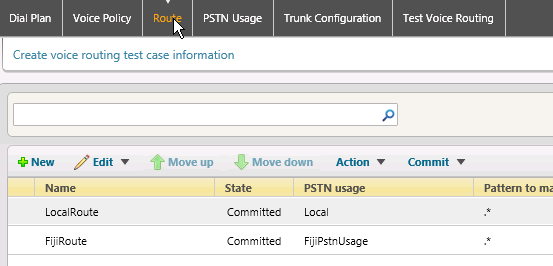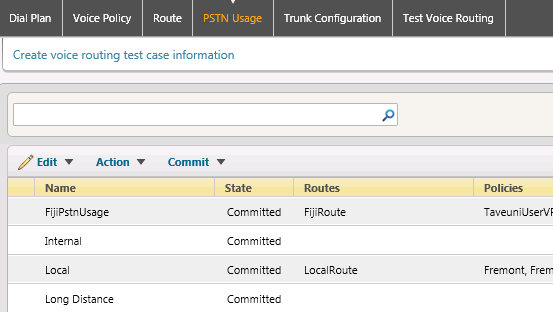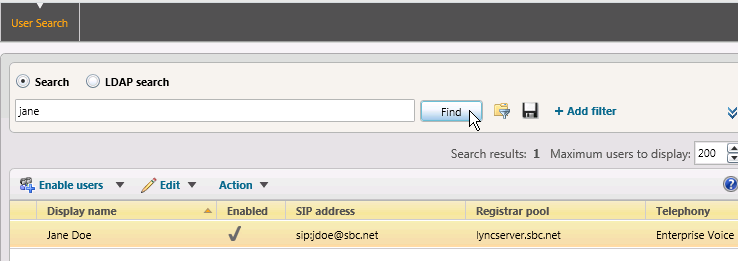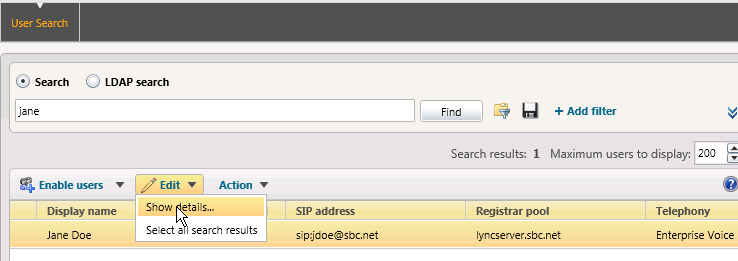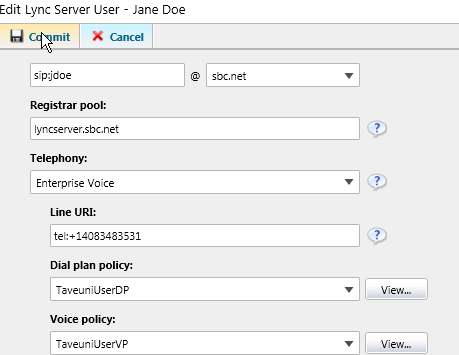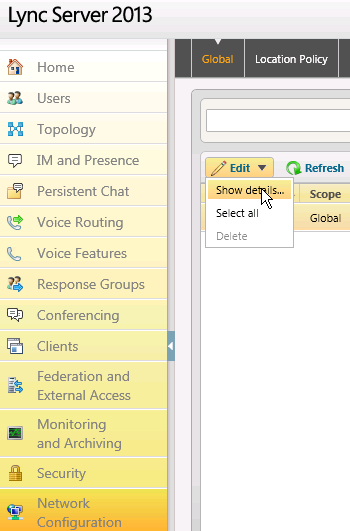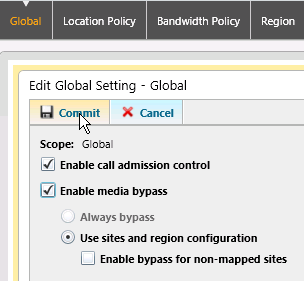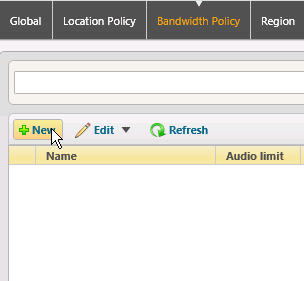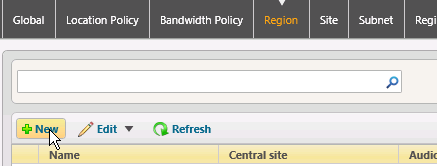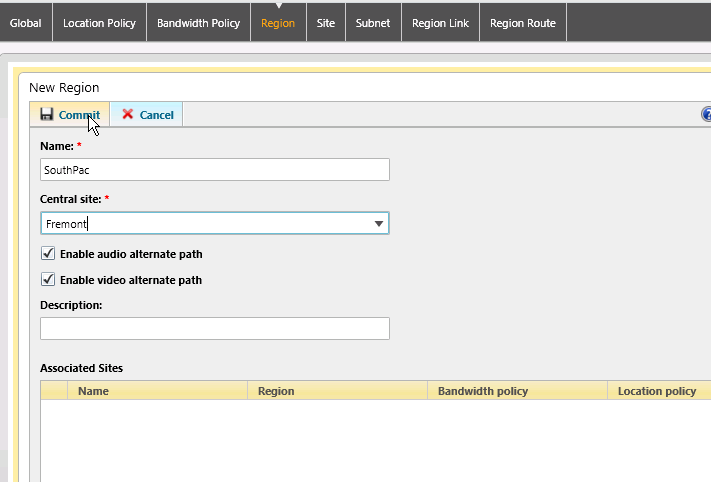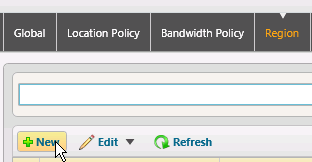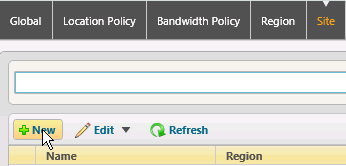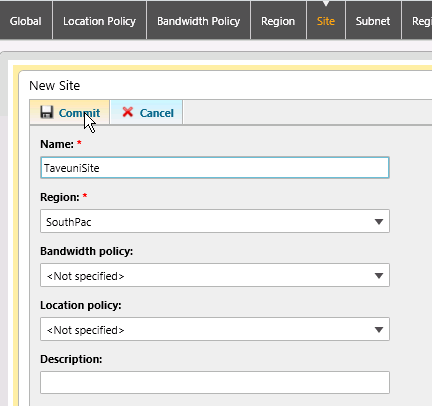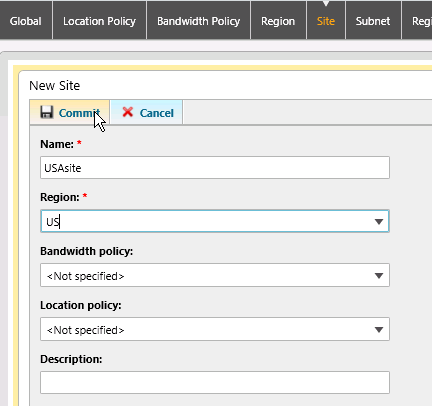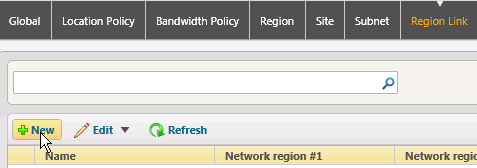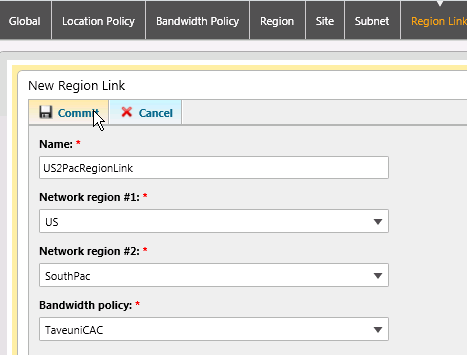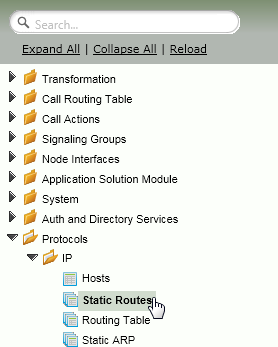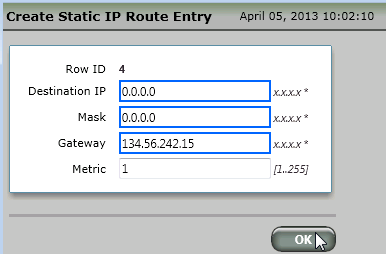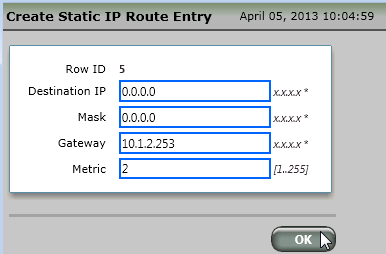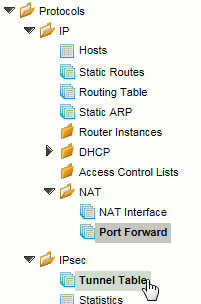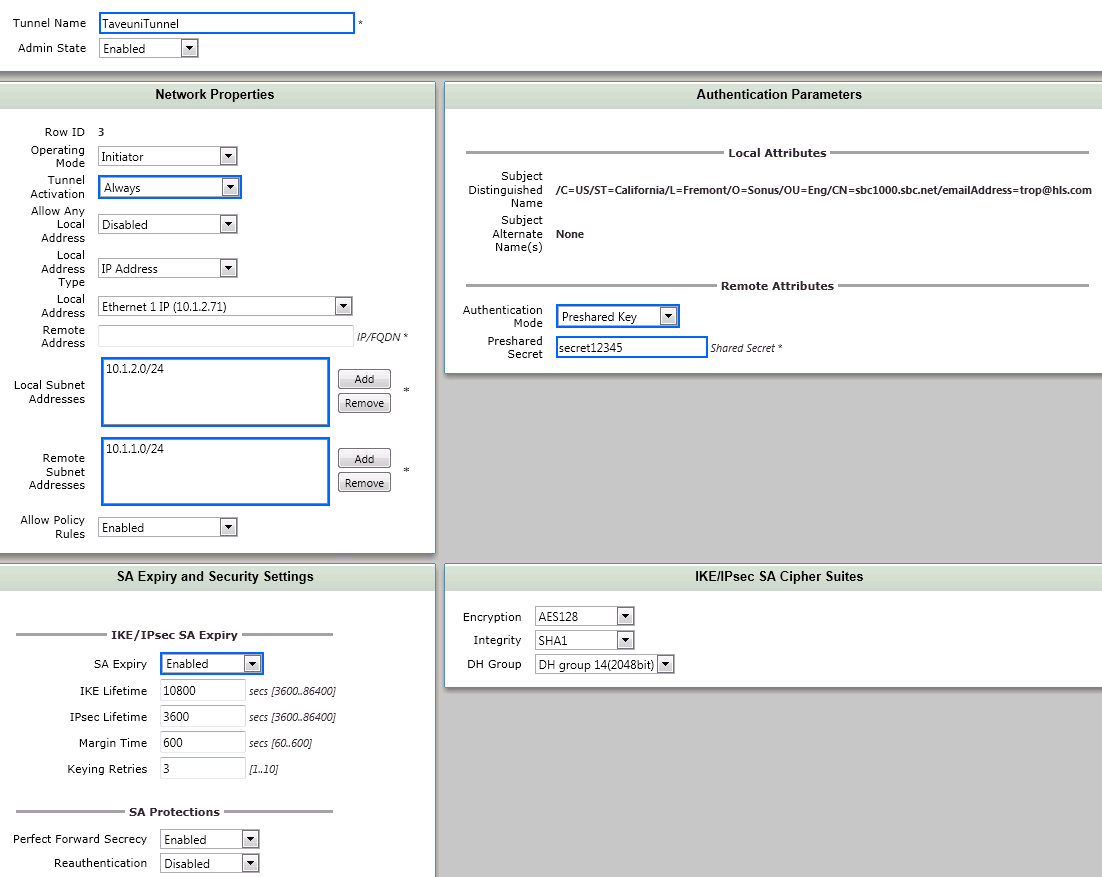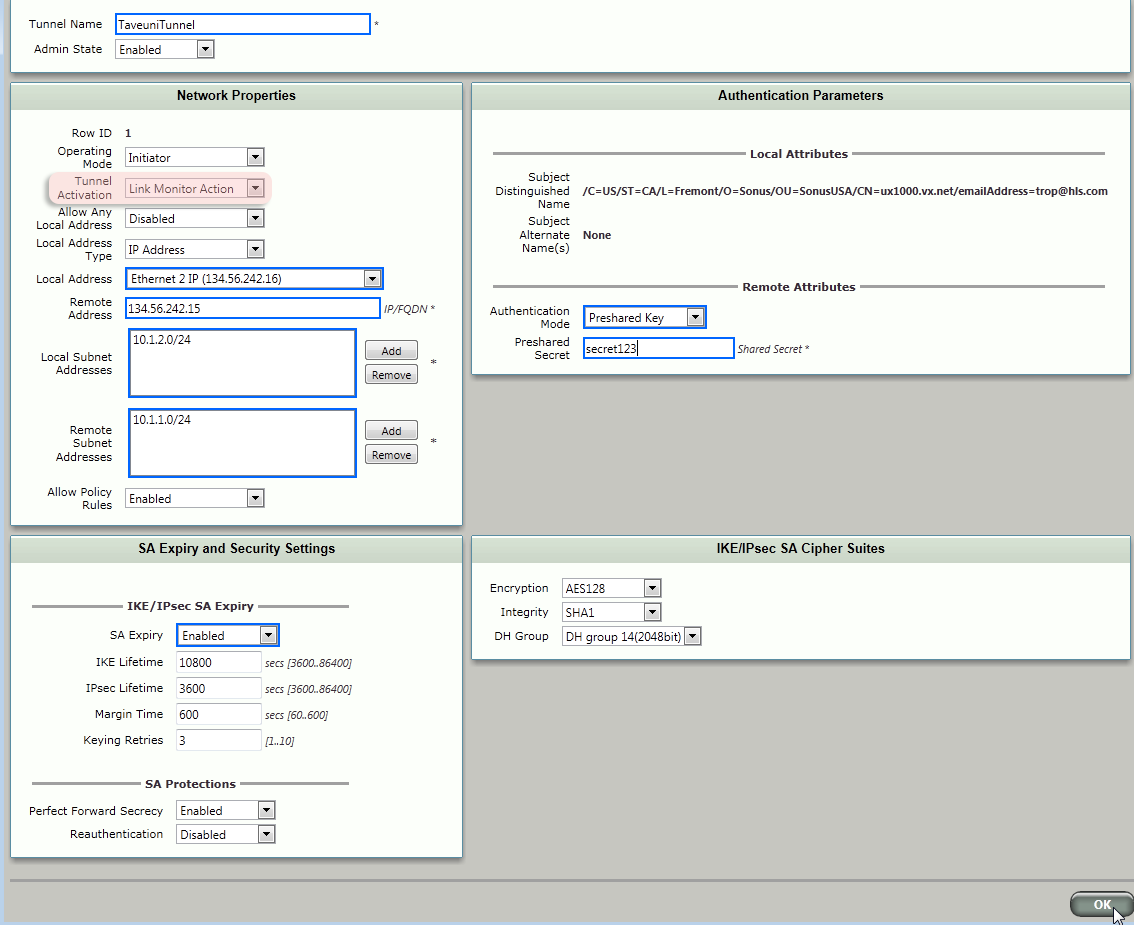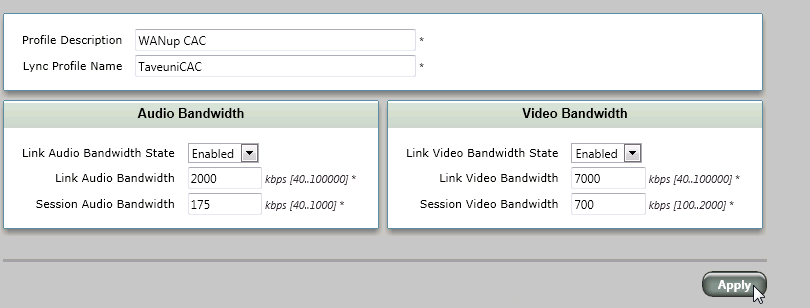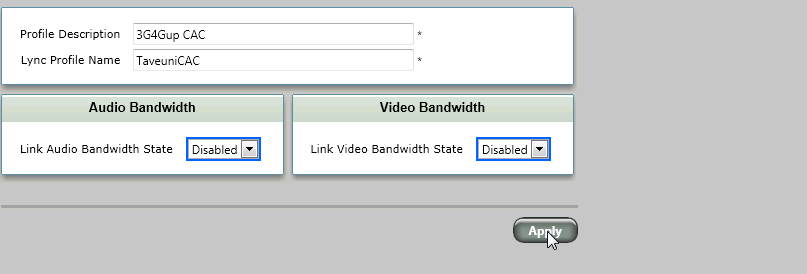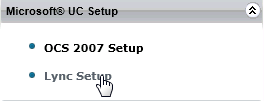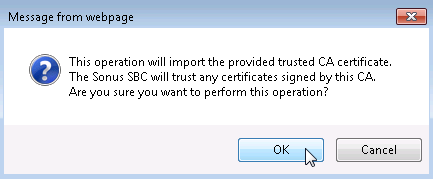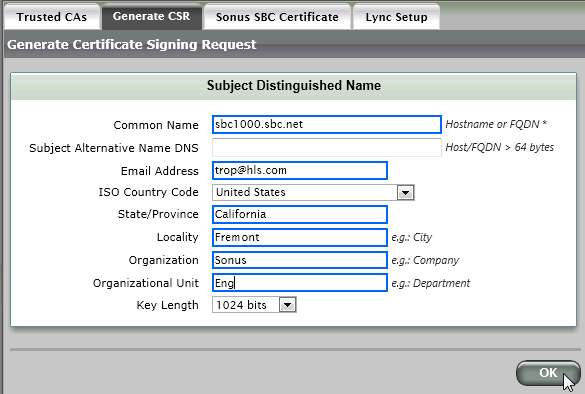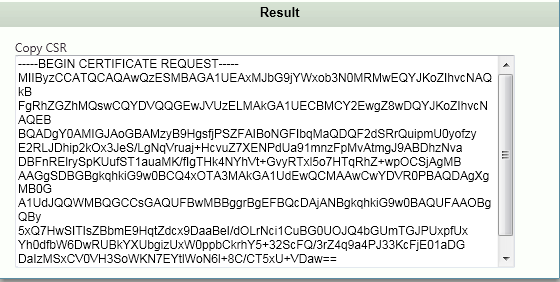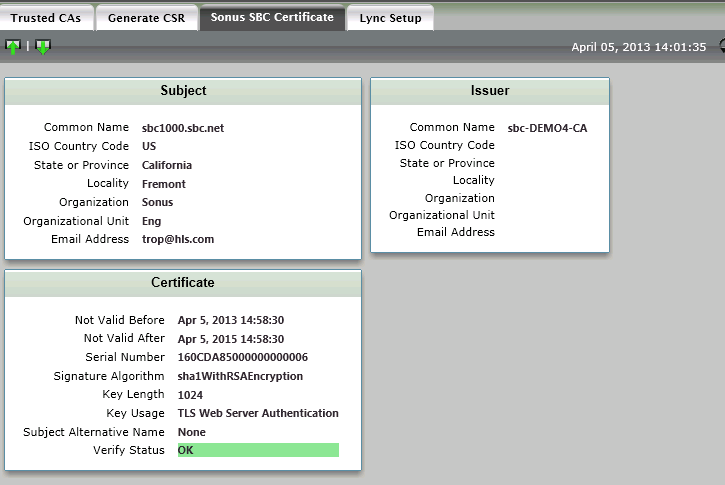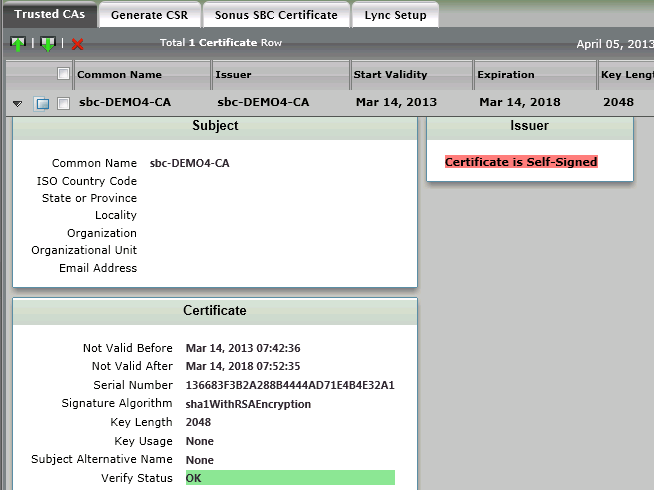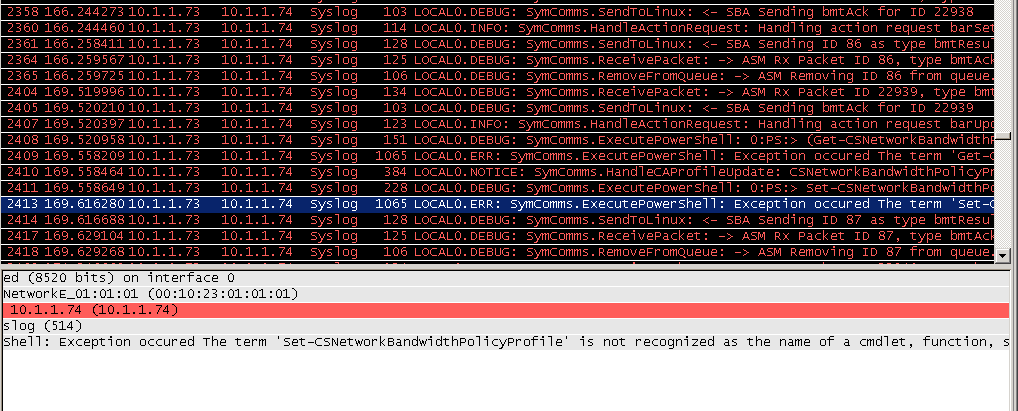Page History
| Section | |||||||||||||||||||||
|---|---|---|---|---|---|---|---|---|---|---|---|---|---|---|---|---|---|---|---|---|---|
|
...
Prerequisites
| Tip |
|---|
Assumes the user is familiar with navigating the SBCx000's WebUI |
...
| Note |
|---|
The RBA Feature is included only in SBC version 3.0 or betternewer. |
SBC Configuration
This quick start document shows the steps and interlational parameters required to configure a UX to successfully route calls. The configuration process of a UX should always begin with running a wizard; however, the wizard only needs to be run for the very first configuration.
...
| Panel | |||||||
|---|---|---|---|---|---|---|---|
| |||||||
|
Before Beginning
...
| Panel | |||||||
|---|---|---|---|---|---|---|---|
| |||||||
|
RBA Image
| Tip |
|---|
If your HQ-side SBC was running version 2.2, you will need upgrade both the ASM image as well as the SBC firmware. The latest ASM image is available at support.net.com. |
...
| Panel | |||||||
|---|---|---|---|---|---|---|---|
| |||||||
|
Check the RBA License
...
| Panel | |||||||
|---|---|---|---|---|---|---|---|
| |||||||
|
DNS Configuration
...
| Panel | |||||||
|---|---|---|---|---|---|---|---|
| |||||||
|
...
Lync Server Topology Configuration
...
Start the Topo Builder
Panel borderStyle none Caption 0 Figure 1 Start Topology Builder Enter Login Credentials
Panel borderStyle none Caption 0 Figure 1 Login Credentials Download the Topology
Panel borderStyle none Caption 0 Figure 1 Download Topology Specify a Filename
Panel borderStyle none Caption 0 Figure 1 Specify Filename Confirm Changes
Panel borderStyle none Caption 0 Figure 1 Confirm
New Branch Site
Add a new Branch Site. In the example, Taveuni is the new remote branch.
Right-click on Branch Sites and select New Branch Site
Panel borderStyle none Caption 0 Figure 1 New Branch Site Enter the remote site identity
Panel borderStyle none Caption 0 Figure 1 Remote Site Identity Configure the site details
Panel borderStyle none Caption 0 Figure 1 Site Details
New PSTN Gateway
...
| Panel | |||||||
|---|---|---|---|---|---|---|---|
| |||||||
|
| Panel | |||||||
|---|---|---|---|---|---|---|---|
| |||||||
|
| Panel | |||||||
|---|---|---|---|---|---|---|---|
| |||||||
|
| Info |
|---|
The RBA function requires media bypass, which, in turn requires TLS/SRTP. Later this document, the remote PSTN gateway will be re-configured from TCP/RTP to TLS/SRTP. Employing the simplier TCP/RTP model will help ease the implementation by providing a phased approach to the implementation. |
...
| Panel | |||||||
|---|---|---|---|---|---|---|---|
| |||||||
|
Lync Server Configuration
...
Click New
Panel borderStyle none Caption 0 Figure 1 New Add a Site Policy
Panel borderStyle none Caption 0 Figure 1 Add Site Policy Select the remote site you just added to the Lync topology.
Panel borderStyle none Caption 0 Figure 1 Select Remote Site Add a new PSTN Usage
Panel borderStyle none Caption 0 Figure 1 Add PSTN Usage Supply a Name and Add a Route
Panel borderStyle none Caption 0 Figure 1 Name and Route Configure a call route pattern
Panel borderStyle none Caption 0 Figure 1 Configure Call Route Pattern Add a Trunk
Panel borderStyle none Caption 0 Figure 1 Add Trunk Choose the newly added remote-network SBC
Panel borderStyle none Caption 0 Figure 1 Select Trunk Click OKat each of the configuration layers
Panel borderStyle none Caption 0 Figure 1 Configuration Level 1 Panel borderStyle none Caption 0 Figure 1 Configuration Level 2 Panel borderStyle none Caption 0 Figure 1 Configuration Level 3 Pagebreak
Commit New Site Voice Policy
...
Click the Commit pulldown and Commit All
Panel borderStyle none Caption 0 Figure 1 Commit All Click OK.
Panel borderStyle none Caption 0 Figure 1 OK Configuration Settings
Verify Route and PSTN Usage
...
In the top navigation bar, click Route. Ensure that the route was added.
Panel borderStyle none Caption 0 Figure 1 Ensure Route Added In the top navigation bar, click PSTN Usage. Ensure that the PSTN Usage was added.
Panel borderStyle none Caption 0 Figure 1 Ensure PSTN Usage Added Pagebreak
Create a User New Dial Plan
...
Click Voice Policy in the top navigation. Click New and select User Policy.
Panel borderStyle none Caption 0 Figure 1 Voice Policy Fill in the form as shown using information for your particular installation.
Panel borderStyle none Caption 0 Figure 1 Fill in Form Click New under Associated PSTN Usages.
Panel borderStyle none Caption 0 Figure 1 New Associated PSTN Usages Pagebreak
Create a New PSTN Usage
Create a PSTN Usage to be used with the User-level policies.
Create a New PSTN Usage record.
Panel borderStyle none Caption 0 Figure 1 Create PSTN Usage Record Enter your site-specific configuration information.
Panel borderStyle none Caption 0 Figure 1 Enter Configuration Information Click Add for Associated Trunk
Panel borderStyle none Caption 0 Figure 1 Add Associated Trunk Select the remote-network SBC gateway
Panel borderStyle none Caption 0 Figure 1 Select Trunk Click OKfor all the configuration layers.
Panel borderStyle none Caption 0 Figure 1 Configuration Level 1 Pagebreak Panel borderStyle none Caption 0 Figure 1 Configuration Level 2 Panel borderStyle none Caption 0 Figure 1 Configuration Level 3
...
Click the Commit pulldown, then select Commit All.
Panel borderStyle none Caption 0 Figure 1 Commit All Click OK.
Panel borderStyle none Caption 0 Figure 1 OK Configuration Settings Pagebreak Verify the Route Route was added.
Panel borderStyle none Caption 0 Figure 1 Verify Route Added Verify the PSTN Usagewas added.
Panel borderStyle none Caption 0 Figure 1 Verify PSTN Usage Added Pagebreak
Add or Move a User into the
...
New Remote Location
You will need to have a user homed to the remote-network location.
Click Users in the left-hand navigation. Enter the name of the user to move to the remote network and click Find.
Panel borderStyle none Caption 0 Figure 1 Find User In the Edit pulldown, select Show Details.
Panel borderStyle none Caption 0 Figure 1 Show Details Set the Dial Plan and Voice Policy of the user to thos of the remote network Userpolicies.
Panel borderStyle none Caption 0 Figure 1 Edit Lync Server User Pagebreak
Configure the Network Configuration
...
Click Network Configuration in the left-hand navigation. Click Global in the top navigation, click the Edit pulldown, and select Show Details.
Panel borderStyle none Caption 0 Figure 1 Show Details Ensure that the CAC and Bypass options are selected. Change the settings and commit, if necessary.
Panel borderStyle none Caption 0 Figure 1 Edit Global Setting
Create a
...
New Bandwidth Policy
Create a Bandwidth Policy to be used to control the CAC from the RBA function.
Click Bandwidth Policy in the top navigation and select New.
Panel borderStyle none Caption 0 Figure 1 New Bandwidth Policy Pagebreak Enter the bandwidth specification for your remote network link, then click Commit.
Panel borderStyle none Caption 0 Figure 1 Enter Bandwidth Specification
Pagebreak
Create a
...
New Region
Create regions to be used with the RBA feature. There will be a region for the HQ, as well as the remote-network.
Click Region in the top navigation and select New.
Panel borderStyle none Caption 0 Figure 1 New Region Add a record for the remote region and Commit.
Panel borderStyle none Caption 0 Figure 1 Remote Region Record Click New New to add the second region.
Panel borderStyle none Caption 0 Figure 1 Add Second Region Pagebreak Add a record for the HQ site and Commit.
Panel borderStyle none Caption 0 Figure 1 HQ Site Record
Create a new Site
Create sites to be used for the RBA function. Again, there will be a HQ site, as well as a remote site.
Click Site in the top navigation and select New.
Panel borderStyle none Caption 0 Figure 1 New Site Enter the information for your remote site. Click Commit.
Panel borderStyle none Caption 0 Figure 1 Remote Site Information Click New and enter the information for your HQ site. Click Commit.
Panel borderStyle none Caption 0 Figure 1 HQ Site Information Pagebreak
Create
...
New Subnets
IP addresses are used by the Lync Server to identify the origin of a Lync client. Create subnet records for both the HQ and remote network sites.
...
Click Region Link in the top navigation and select New.
Panel borderStyle none Caption 0 Figure 1 New Region Link Using the pulldowns, select the HQ Region, the Remote Region and the Bandwidth Policy profile you previously created.
Panel borderStyle none Caption 0 Figure 1 Select From Pulldowns Pagebreak
Create a
...
New Region Route
Create a Region Route for the Region Link.
...
Click the Settings Tab and select Static Routes as shown in the diagram
Panel borderStyle none Caption 0 Figure 1 Static Routes On the remote-network SBC, add a Static IP Route
Panel borderStyle none Caption 0 Figure 1 Add Static IP Route Create a default route that points to the WAN interface on the HQ SBC. Set the Metric to 1.
Panel borderStyle none Caption 0 Figure 1 Create Default Route - Metric 1 Create another default route that points to the IPSec IPsec interface on the HQ SBC. Set the Metric to 2.
Tip Default routes are required for the automated routing failover to function. Only use default routes.
Panel borderStyle none Caption 0 Figure 1 Create Default Route - Metric 2 Verify the newly added static routes
Panel borderStyle none Caption 0 Figure 1 Verify Static Routes
...
At this point you should be able to call Lync-to-Lync over the WAN.
Creating the
...
IPsec Tunnel
Use the following steps to configure an IPsec tunnel between the remote and HQ SBCs.
SBC1000
...
IPsec Configuration
The following steps configure the remote SBC to generate an IPsec tunnel to the HQ SBC when the WAN is down.
Click IPSec IPsec | Tunnel Tablein the left-hand navigation.
Panel borderStyle none Caption 0 Figure 1 Tunnel Table Add a Tunnel Table
Panel borderStyle none Caption 0 Figure 1 Add Tunnel Table - Enter the configuraton information for your IPsec tunnel.
- The Local Subnet Address must be programmed with IP information for the remote network.
The Remote Subnet Addressmust be programmed with IP information for the HQ network.
Panel borderStyle none Caption 0 Figure 1 Enter Configuration Information
SBC2000
...
IPsec Tunnel Configuration
The following steps configure the HQ SBC to receive an IPsec tunnel from the remote SBC when the WAN is down.
...
With the successful testing of the static IPsec tunnel, it is time to make the tunnel dynamic so that the 3G4G link is only used activated when the WAN is down.
Modify the Remote SBC IPSec IPsec Tunnel Activation to Link Monitor Action and click OK.
Panel borderStyle none Caption 0 Figure 1 Modify Tunnel Activation
...
Click WAN in the left-hand navigation and select CAC Profiles.
Panel borderStyle none Caption 0 Figure 1 CAC Profiles Create a profile for the WAN up situation. Set the bandwidths according to your desired WAN link configuration and capacity. Click Applywhen finished.
Panel borderStyle none Caption 0 Figure 1 Create Profile for WAN upUp Now, create a CAC profile for WAN down. Setting the Bandwidth State to Disabledresults in any HQ<>remote-network calls being routed over the PSTN.
Panel borderStyle none Caption 0 Figure 1 Create CAC Profile for WAN Down
...
Click the Taskstab.
Panel borderStyle none Caption 0 Figure 1 Tasks tabTab Click Lync Setupin the left-hand navigation
Panel borderStyle none Caption 0 Figure 1 Lync Setup Obatin the root certificate from your network administrator and copy it to your PC. From the webui, click Import Trusted CA Certificateas shown.
Panel borderStyle none Caption 0 Figure 1 Import Trusted CA Certificate Set the Mode to File Upload and Browseto find the file containing the root certificate.
Panel borderStyle none Caption 0 Figure 1 CA Certificate File Upload Click OKto import the root certificate.
Panel borderStyle none Caption 0 Figure 1 Import Root Certificate Click the Generate CSRto generate a certificate request for the SBC. You will send this certificate request to be signed by the your certificae authority.
Panel borderStyle none Caption 0 Figure 1 Generate CSR Copy and paste the certificate request into a file and send it to your root certificate authority for signing.
Panel borderStyle none Caption 0 Figure 1 Result When the signed certificate is returned, click the Sonus SBC Certificatetab and import the certificate.
Panel borderStyle none Caption 0 Figure 1 Import Certificate Set the Mode to File Upload and Browseto find the file containing the SBC certificate.
Panel borderStyle none Caption 0 Figure 1 SBC Server Certificate File Upload Verify the SBC and root certificates
Panel borderStyle none Caption 0 Figure 1 Sonus SBC Certificate Panel borderStyle none Caption 0 Figure 1 Trusted CAs
...
| Panel | |||||||
|---|---|---|---|---|---|---|---|
| |||||||
|
RBA computer not a member of RTCUniversalServerAdmins group
...
| Panel | |||||||
|---|---|---|---|---|---|---|---|
| |||||||
|
OPTIONS with Carrier's IP address
...






